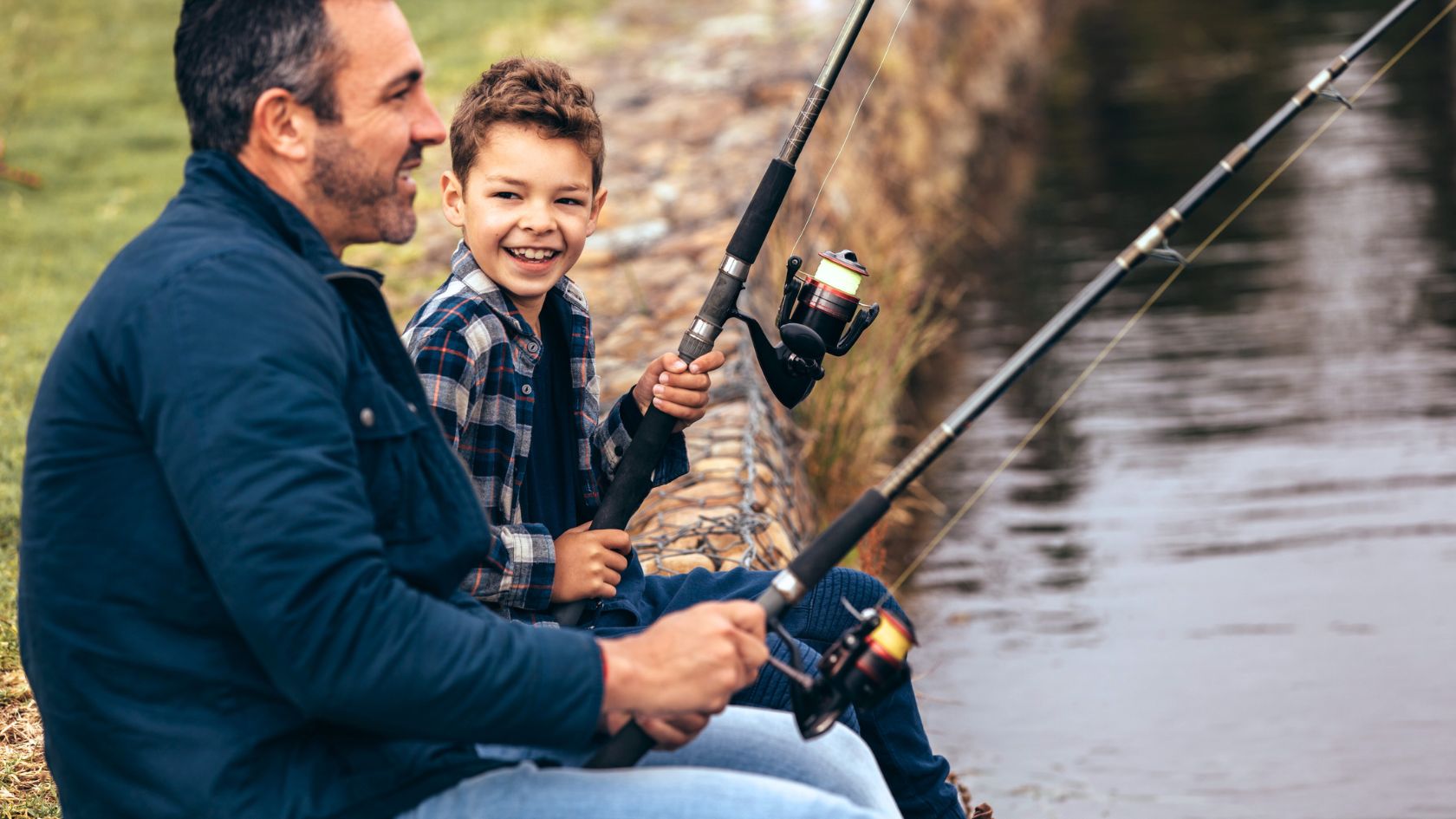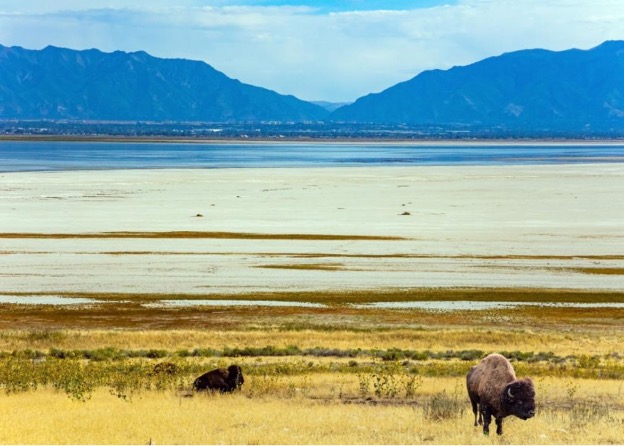The average person who picks up a fishing rod is unaware of when he or she is legally required to obtain a fishing license. After all, the mainstream media doesn’t discuss the topic of fishing licenses with regularity. Instead of searching the web for “when do I need a fishing license”, continue reading. We’ve got all the information you could possibly need about fishing licenses.

When do I Need a Fishing License?
The majority of adults are legally required to purchase a fishing license to fish local waterways within the confines of the law. However, there are differences in state laws that will prompt you do ask, “Do kids need fishing license?” and pose additional questions. As an example, some states do not require that kids, tweens and teens obtain a fishing license to legally fish. Some states even permit senior citizens to cast their line in the water without a fishing license.
A fishing license isn’t as formal as most envision. Rather, the average state’s fishing license is merely a single piece of paper available for purchase. The logic in requiring that adults obtain a fishing license to fish is to minimize the amount of fish plucked out of our increasingly polluted and overfished waterways. Do your part in the effort to conserve our increasingly sensitive surroundings and you will make it that much easier for your grandchildren as well as their offspring to fish clean waterways.
Moreover, fishing licenses rake in revenue for state governments. Though the prospect of paying yet another government fee is depressing, the silver lining is that most states use the money obtained from fishing licenses for waterway stocking and protection. Some state and federal wildlife specialists use a percentage of the money obtained through fishing license revenue to study local fish and measure population levels for posterity’s sake. The money you spend for your fishing license might be used to tag a specific species of fish to get a sense as to whether its numbers are to increase or decrease throughout the season.
Err on the Side of Caution
If you are unsure of the minimum age required for a fishing license, be safe rather than sorry. Check your local government’s state laws regarding fishing licenses. The majority of states mandate that one obtain a fishing license at the age of 16. However, some states require that fishermen obtain a fishing license prior to the teenage years.
Let’s take a quick look at some examples of the minimum age required for purchasing a fishing license. At one extreme end of the spectrum is Arizona that requires a fishing license when fishermen reach the age of 10. Alternatively, Indiana is at the opposite end of the spectrum, requiring a fishing license when fishermen reach the age of 18. Colorado residents are required to obtain a fishing license at the age of 16 to fish local waterways.
The minimum age for a fishing license in Florida is also 16. However, Alaska doesn’t require a fishing license until age 18. Arizona lets local kids fish without a license up until the age of 10. Idaho requires a fishing license at the age of 14.
Requirements for a Fishing License
Every state in the union offers a fishing license yet prices are different in each’s boundaries. Each state also offers yearly licenses. Some states offer multiyear permits along with lifetime licenses. However, fishermen should be aware that the vast majority of state fishing licenses expire, meaning renewal will be necessary.
Most states require that the applicant for a fishing license be between the ages of 18 and 64. The age requirement for a fishing license means those who are kids, tweens and even some in their teenage years will not require a license to fish. The caveat is that some states require that youngsters obtain a junior fishing license to fish under the age of 18. Moreover, a senior fishing license is available for senior citizens over the age of 64. The silver lining is that senior fishing licenses are almost always available at a lower cost than regular fishing licenses.
Be sure to check your local laws as certain states permit fishing without a license for senior citizens, kids and members of other special groups. Examples of such special groups include the disabled and members of the military. If money is tight, consider combining the fishing license application with another application such as a hunting license application or trout stamps. Applying for two or more such licenses in unison will help lower the total cost.
Certain states even go as far as offering married couples the option of a couples license to decrease the cost all the more. Some states even go as far as dangling discounts to those who refer friends and family who have not yet obtained a license for fishing. However, most fishing licenses are affordable.
As an example, Delaware charges slightly more than $8 for state residents to obtain a fishing license. However, California charges more than $50 for a fishing license. Be aware that additional fees might be tacked on. As an example, some states such as Alaska have add-on fees. Alaska’s add-on of the king salmon stamp to the fishing license runs an extra $10.
Some states also distinguish between recreational fishing licenses and commercial fishing licenses. Other states distinguish between fishing licenses for saltwater and those for freshwater. States that add trout to their water bodies might require that fishermen buy a trout stamp to reel in trout. Those who live near the ocean might be required to buy a special fishing license for saltwater fishing.
A Fishing License is not a License to Catch Every Fish in the Water
There is a common misconception that a fishing license empowers a fishermen to catch an unlimited number of fish. Each state has a unique limit in regard to bag and possession, meaning your catch is limited to a certain number of fish species. Moreover, restrictions can be implemented at specific reservoirs, lakes and other bodies of water based on the nuances of the local fish population.
Are Lifetime Fishing Licenses Available?
Indeed, some states offer lifetime fishing licenses. Examples of states that offer lifetime fishing licenses to state residents of every age include:
- Texas
- Oklahoma
- Ohio
- New York
- Arkansas
- Arizona
- Wyoming
- West Virginia
Virginia, Vermont, Minnesota, Nebraska, Maine and Georgia permit residents from outside of the state to buy a lifetime fishing license.
Bring Your Fishing License When Fishing Out of State
Some states have fishing license reciprocity, meaning they permit out of state fishermen to fish their local waterways without requiring that they obtain a second fishing license. Most such states with reciprocity share waterways or borders. As an example, New England states have their fair share of fishing license reciprocity laws, especially around coastal areas. Moreover, Arkansas has agreements on the books with bordering states allowing locals to fish in neighboring states without penalty.
If you are planning to head out of state to fish, bring your fishing license in case you are questioned by authorities. It is also in your interest to check the fishing license laws of states bordering your home state to ensure your fishing license will suffice.
Need fishing or marine products? Click here to visit our marine products page.




